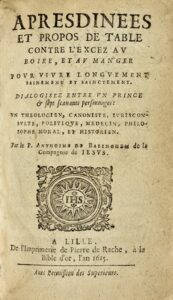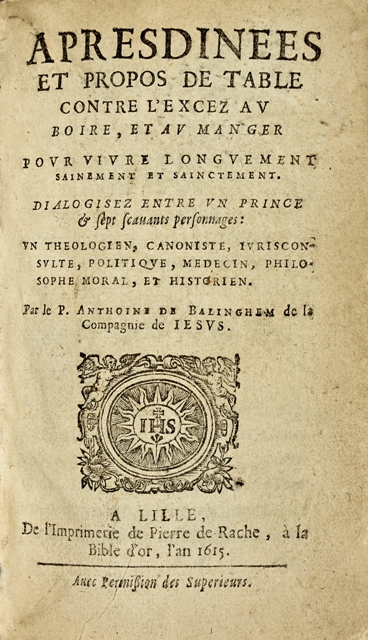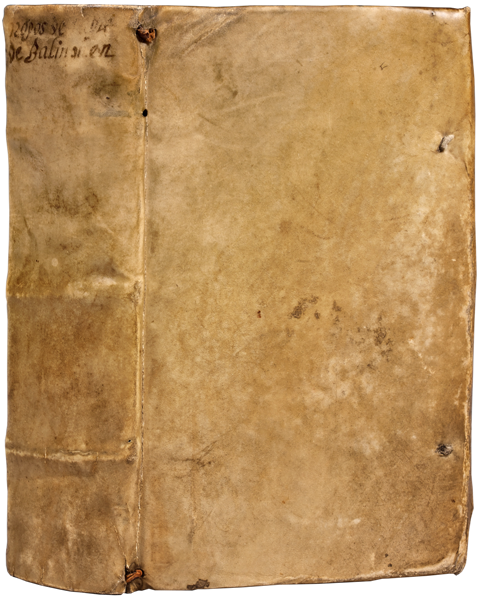Lille, De l’Imprimerie de Pierre de Rache, à la Bible d’or, l’an 1615.
12mo [155 x 93 mm] of (13) ll., (1) bl. l., 588 pp., (1) bl. l. Tiny worm gallery in the blank lower margin of pp. 91 to 121, 143 to 163 and 553 to 588 not affecting the text, slightly brown paper. Full overlapping vellum, remains of ties, flat spine with handwritten manuscript. Contemporary binding.
Very rare “first edition of this facetious and amusing work against the vice of drunkenness and drunks”. (Vicaire, 62). Brunet, I, 626; Sommervogel, Bibliothèque de la Compagnie de Jésus, I, 834
“Volume containing singular dissertations. The book has been sought-after” (Rahir, La Bibliothèque de l’amateur, 304).
“Uncommun book” notices Brunet.
Born in Saint-Omer in 1571, Antoine de Balinghem joined the Jesuits from Southern Netherlands when he was 17, then was sent in Italy in Novellara to do his noviciate. Professor of philosophy in Douai then in Leuven, he was ordained priest in 1596 and spent the rest of his life teaching and translating various books from Italian and Spanish. He died in Lille on January 24th 1630.
The Après dinées are written in the form of dialogues on priggishness and drunkenness held between the author and various experts who bring their opinion on the matter of “Good drinking” and of “Good eating”. The points of view of a theologian, a canonist, a jurisconsult, a politician, a doctor, a philosopher and a historian are following one another. The two sins are analyzed, commented then praised or castigated under the expert look of seven characters. The author does not aim only the popular class, he also accuses the magistrate of compromising the city’s interests, the judge the ones of those due to be tried, the confessor of exposing himself, when drunk, to betray the secret of the confessional, etc.
“Very peculiar and significant document about the habits and customs of the Flemish populations in his time” (Oberlé).
An attractive copy in pure contemporary binding.
Engraved ex-libris bearing the motto Beatus homo quem tu erudieris Domine and the initials “A.L.S.” on the paste-down.
See less information



